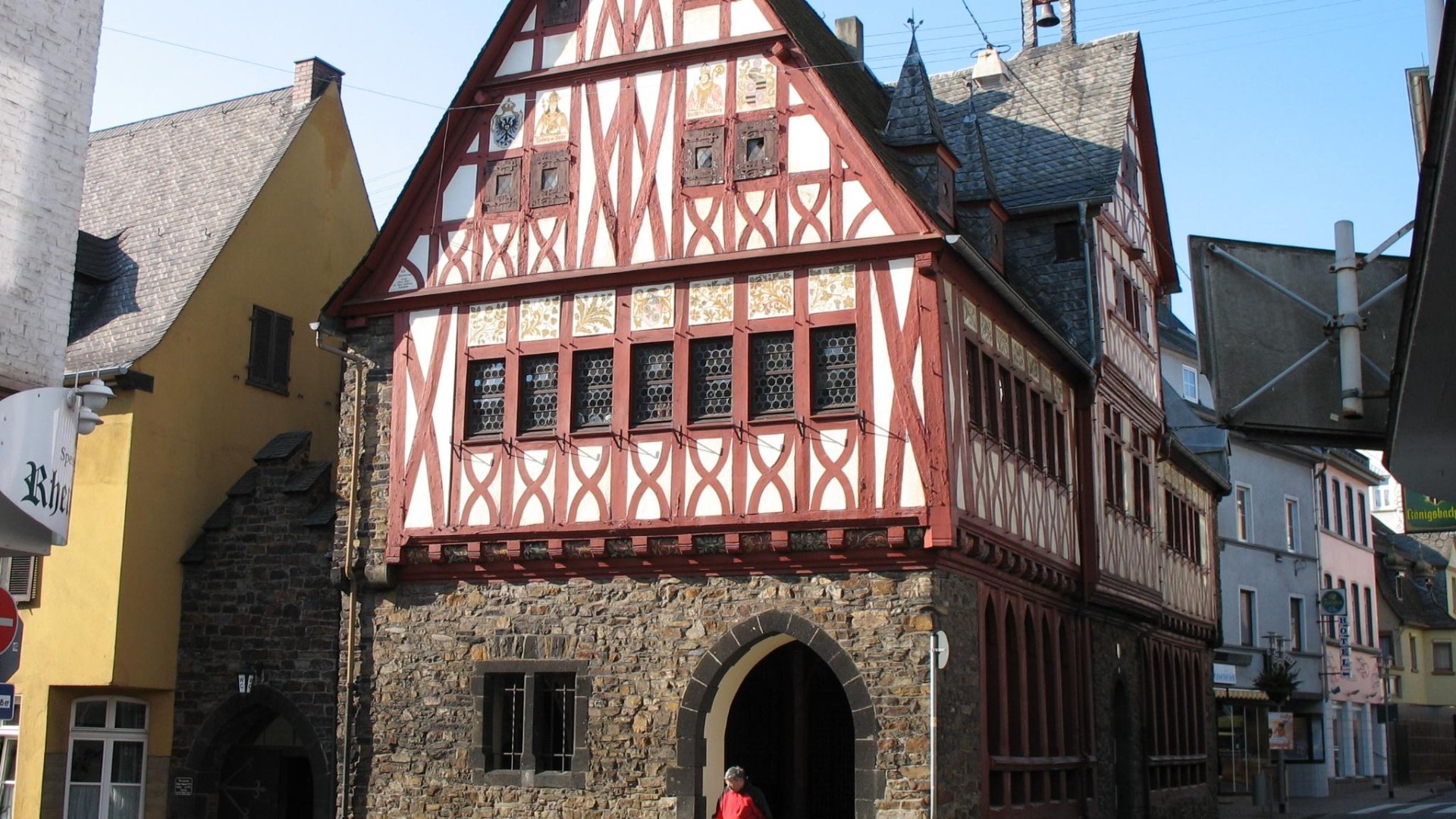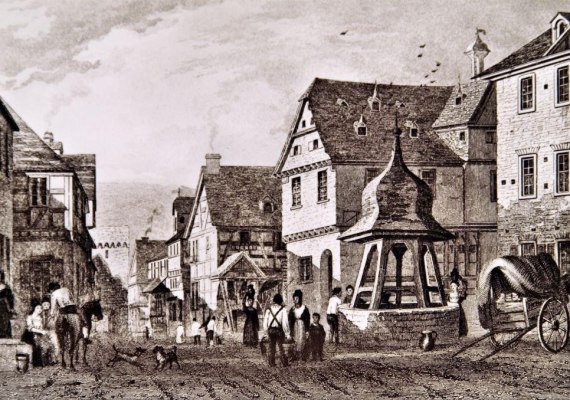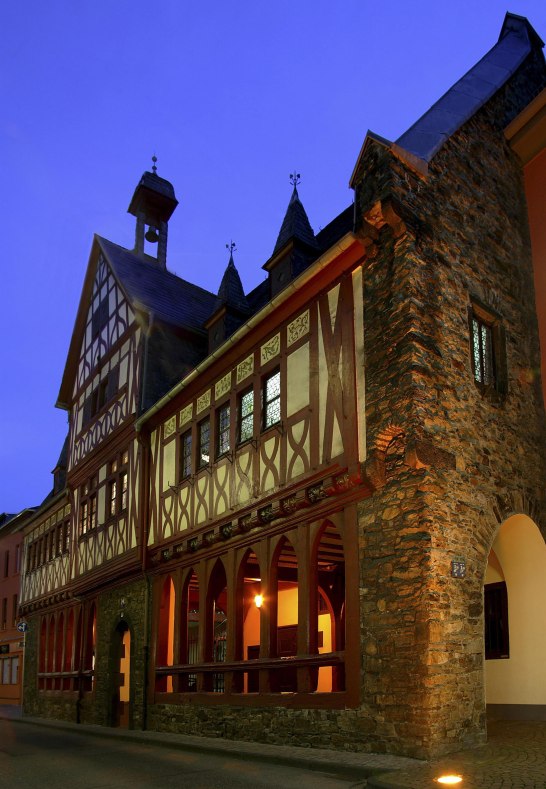Ancient Town Hall
Kaiserplatz 1, 56112 Lahnstein
The Citizen's Pride
For more than 500 years, the distinctive Old Town Hall has shaped the face of Oberlahnstein. The building, with its unique roof turret bearing the fire bell, is not only a very beautiful example of early Rhenish half-timbered architecture but is also one of the oldest half-timbered town halls in Germany. It was built in the 15th century at a central location in the market square. The imposing structure impressively illustrates the city's significance in the late Middle Ages; it was the visible expression of the pride of the citizens of Oberlahnstein.
In the building, first documented in 1507 as "Gemeinde Hus," the affairs of the city were directed from then on, judicial proceedings were held, and the market was conducted in the older hall on the ground floor, which was constructed in the High Gothic style. Thus, the town hall united under its roof the rights of self-administration, judiciary, and market, alongside the right to establish a city wall, the three most important achievements granted to Oberlahnstein with the conferment of city rights in 1324.
Over the years, the old town hall has been used for various purposes. The large council chamber on the upper floor served for some time as a pharmacy and classroom. The ground floor housed the night watchman’s service room, later the police station, as well as the 'Bulles'—the popularly referred to citizens' prison—and the fire department's equipment room. The attic was used to store grain and other natural goods received as rent and dues. Today, the Old Town Hall houses the city archive and the local museum.
The significant and eventful history of the town of Oberlahnstein is still evident in the Old Town Hall today. Paintings in the hall depict the election and deposition of King Wenceslaus, who ruled the Holy Roman Empire from 1378 to 1400 and was deposed in Lahnstein. On the southern gable, King Ludwig the Bavarian, who granted Oberlahnstein its city rights, and Diether of Isenburg, who lived in Lahnstein from 1461 to 1474 as Archbishop and Elector of Mainz, are each represented with their coats of arms.
In front of the building lies the old marketplace with the medieval market fountain, whose baroque wooden structure was reconstructed according to old plans in 1937.




